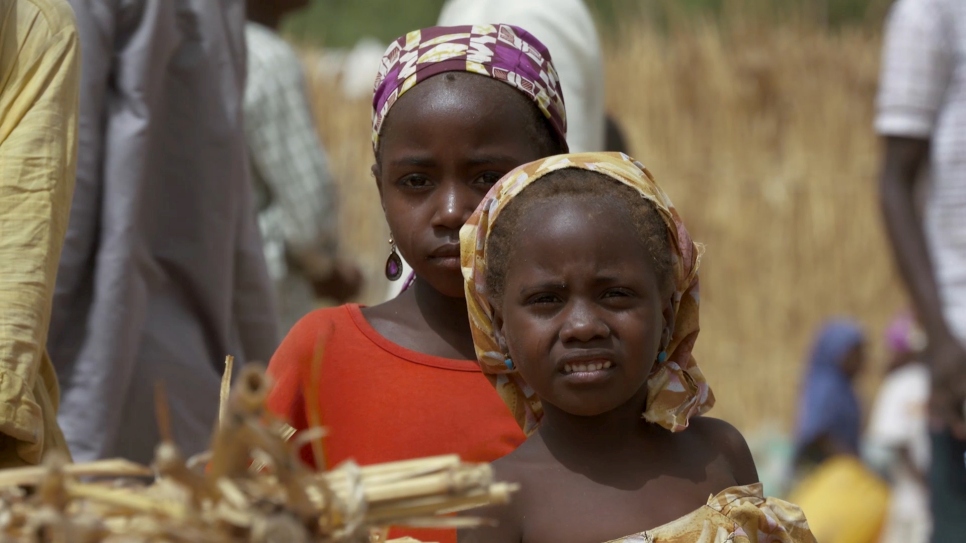Nigeria emergency
“Every day we pray for protection and peace.”
Boussam Abdulahi, Nigerian refugee
The Lake Chad Basin region is grappling with a complex humanitarian emergency. On top of violent attacks by extremist groups, the dire situation has been exacerbated by conflict-induced food insecurity and severe malnutrition, which have risen to critical levels. Despite the efforts of governments and humanitarian aid, millions remain in need of humanitarian assistance.
If you are a refugee and need help, click here for more information.
The challenges of protecting the displaced are compounded by the deteriorating security situation as well as socio-economic fragility, with communities in the Sahel region facing chronic poverty, harsh climatic conditions, recurrent epidemics, poor infrastructure and limited access to basic services. Despite the return of Nigerian IDPs and refugees to accessible areas, the crisis remains acute.
What is UNHCR doing to help?
UNHCR has scaled up its response and is working with the authorities in north-eastern Nigeria, as well as with UN partners, national and international NGOs, the forcibly displaced and affected populations. These joint efforts are geared towards assisting displaced persons, as well as returning refugees and IDPs to regain their dignity and a sense of normal life. UNHCR is providing protection-by-presence in the field through strategic protection monitoring, vulnerability screening, provision of material assistance and subsequent individual protection referrals to service providers
UNHCR’s work also includes efforts to ensure that the rights of persons of concern are respected. This work is among other things, geared towards preventing and responding to sexual and gender-based violence through the provision of legal and psycho-social support to survivors. Such efforts also encompass the provision of shelter and basic household items as well as safeguarding legal rights by providing documentation and legal aid.
UNHCR is also advocating for increased access to social and basic services for displaced persons, respect for the civilian and humanitarian character of IDP camps and a better protection environment overall.
Supporting the government’s efforts towards the restoration of peace and security to enable durable solutions is also part of UNHCR's engagement in Northeast Nigeria. This includes capacity building and training for authorities, the military, partners and persons of concern on international and national legal frameworks for the protection of IDPs and other persons of concern. The capacity-building initiatives also cover international humanitarian law and other relevant frameworks on human rights. This is taking place at both the state and national levels.
Working jointly with other agencies, UNHCR also facilitates sessions on protection against sexual exploitation and abuse for security agents and humanitarian workers.
In neighboring Niger, Cameroon and Chad, UNHCR is working with the authorities to improve the protection environment, and ensure that refugees enjoy the right to asylum and are not forced to return to Nigeria against their will.
To find the latest figures, please visit our Data Portal. You can also read the latest external updates on our Global Focus page.

